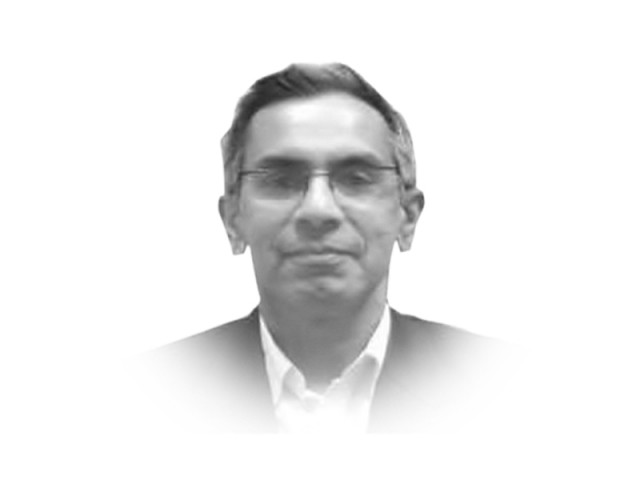Institutions or individuals?
Institutions are only as relevant as their leaders, and it is from this that CJ’s authority, legitimacy flows.

Institutions or individuals?
This argument suggests, that in the absence of an activist military, the judiciary has become the keeper of what it assumes are Pakistan’s morals. It has decided to make decisions, which will have a bearing on the political course of the country, as it has in the past, but with greater vigour and public support. It is being argued that the judiciary now moves with a ‘mind of its own’, perhaps, independent of pressure from the President as in the past, or providing justification for a military coup, part of the judiciary’s many accomplishments. While it is clearly noticeable that the judiciary is taking proactive decisions in the political — not just the public — life of the country, a challenge has been thrown, which says that until the military is also put into the dock for many of its well-documented misdemeanours, the judiciary will simply be perceived to be on a vengeful drive discriminating against a few chosen opponents. In other words, the question of whether the judiciary is the strongest institution in Pakistan, depends on its ability to take on the military, rather than the soft target of the Prime Minister.
These assertions and this line of thinking have been questioned and challenged by those who point to flaws in the original argument. In the vibrant public discourse on such matters, some interlocutors have questioned the basic premise of the argument that this judiciary was acting as an institution, and argued that this judicial activism is probably on account of the particular historical circumstances of the moment, and specifically due to the role of the incumbent Chief Justice of Pakistan. They see this as an individual’s particular penchant, not necessarily an institutional shift.
Some commentators make the very valid argument, that in discussions on the Supreme Court, it is essential to distinguish between the power of the existing crop of judges and the judiciary as an institution. One needs to avoid using the two interchangeably, and that the Supreme Court under its existing Chief Justice needs to be seen as an anomaly. Based on historical events, his authority flows not from the institution but from his self — what is seen to be his heroism (in saying no to a dictator), his exemplary character (to remain steadfast in his resolve while deposed) and his extraordinary accomplishment (to return twice in the face of resistance from first Musharraf and then Zardari). These comments imply that institutions are only as relevant as their leaders, and that it is from this that the Chief Justice’s authority and legitimacy flows, not from the Constitution and the Supreme Court.
Examples from recent history support such conclusions, where individuals have led revolutions or broad social movements and have influenced major events, yet after their passing or removal, their successors have not had the legitimacy, support or power they had. The same institutions (or outcomes) have lost their earlier power and substance. Examples can be found from scores of cases related to institutions, such as the military, political or social movements, and even the superior judiciary.
Individuals matter immensely and even if they are embedded in institutions, in numerous cases, have the ability to make the institution in their own, preferred, image. For good and for bad, many leaders fail to do so, not simply because they are caught in straitjacketed institutions, but on account of personal failure or excessive or non-existent vision or ambition. As world history shows, over and over again, leadership is crucial to outcomes and results, good and bad.
Clearly, one has to examine the cliché being posted as analysis, of the ‘clash of institutions’, between parliament and the superior judiciary. Are these institutions clashing, or is it a particular leadership using that institution to further a particular case or crusade? A more belligerent Pakistan Peoples Party leader could have taken on the Supreme Court, and the outcome (and analysis) would have been very different. A military coup in 1977 and another in 1999, with very different leaders of the same institution, has left very different legacies.
There are far too many examples to emphasise the point made by those who question the institution-strengthening arguments, and we know, ‘institutional change’ does come through the direction provided by its leader. Apple might not feel the same without Steve Jobs, but is still much the same company. However, it is impossible to predict what happens some months from now under a new Chief Justice, and what degree of independence and belligerence a new Supreme Court exhibits. Nevertheless, one ought to expect, as has been suggested in other contexts, that the bar for the future has been raised.
As has been argued before, Musharraf, despite the dislike many have of his military dictatorship, did raise the bar on the political front with regard to women, the media, and even relations with India. It is expected that the next Chief Justice will also have to deal with raised standards set by his predecessor, and whether the legacy of a strong institution prevails, will only be tested after a series of events which allow us to examine outcomes in a somewhat longer time-span. It is too soon to answer the question: which is Pakistan’s strongest institution?
Published in The Express Tribune, August 9th, 2012.













COMMENTS
Comments are moderated and generally will be posted if they are on-topic and not abusive.
For more information, please see our Comments FAQ